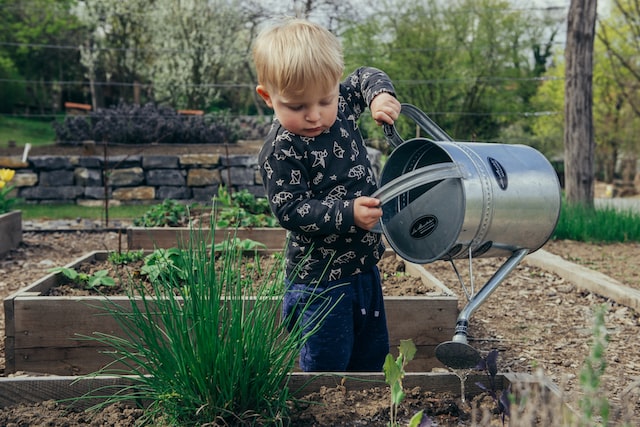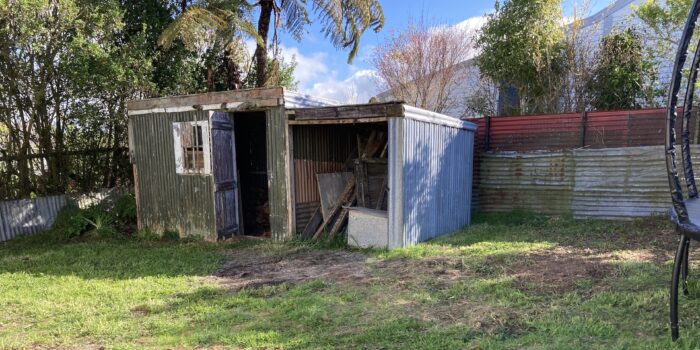Should You Be Giving An Allowance To Your Kids?
Giving an allowance to your kids is a common practice, so common that you might not even think about the purpose behind doing it.
At its, core an allowance is a tool to teach money management, responsibility and where money comes from to your kids.
It can also increase and encourage a sense of independence and create a hard working attitude.
There are four different ways you could go about giving allowance to your kids.
- Allowance that is tied to chores
- Allowance that is given regardless of chores
- Some chores for allowance, some without
- No allowance at all
Giving an allowance in exchange for chores
This is a fairly common approach and means that your children have agreed upon household chores they have to do in a week/month, to receive their allowance.
This is often the way parents teach their kids on where money comes from. You do work, then receive money.
Typical chores are for example dishes, vacuuming, cleaning their room, washing clothes etc.
Punishment for not doing your chores would often be withholding the allowance, like in real life, if you don’t do the work, you don’t get paid.
I grew up with this type of allowance. We all had designated chores each week, and on top of those all of us kids (who were old enough) would also be on dinner duty once a week.
I don’t remember ever having allowance not given to me, but then again I was a pretty obedient kid to begin with!
Those who don’t like this method say that while yes, it teaches that you have to work for your money, they find that the issue is the type of chores the children are doing.
The chores are often very basic, the type of chores you’d have to do anyway, so as these kids grow up into adults running their own households they might feel unmotivated by these basic tasks that no longer give them a reward as they used to.
Often those agains this method also believe that as children are a part of the family, they should contribute to chores (keeping their age in mind of course) as part of the family rather than expecting to get paid to do so.

Allowance not tied to chores
Another way to go about it is to give a set allowance and your kids will get it, doesn’t matter if chores are done or not.
In this method not doing your chores might result in losing other privileges, like TV time or other device time etc.
Those using this method might believe that providing allowance is important in itself and shouldn’t be tied to performance in chores.
They might also believe that chores at home should be done regardless of getting paid or not.
Whereas those against giving allowance for “free” might feel that it sends a wrong message about where money comes from and make kids feel entitled to receiving money without having to work for it.
Some chores for allowance, some without
This method is kind of a hybrid of the two methods I spoke about above, paying for chores and not paying for chores.
The idea is that your basic chores are expected to be done without monetary compensation, like dishes or cleaning your room for example. But then you give your kids other jobs around the house that they need to perform if they would like to get their allowance.
These chores are often not your basic every day tasks, like cleaning the car or weeding the garden for example.
Things that you might outsource anyway. But instead you just outsource to your kids and pay them.
This way, your kids will be working for their allowance, but also participating in the running of the household as members of the family without expecting to be paid for it.
I will be implementing this method with my daughters at home. The paid chores can change as the girls get older, and I will be asking them to brainstorm what it is they can do to earn their allowance.
Not giving an allowance at all
The last option is to not give allowance at all.
Since allowance is a tool to help your kids learn about money, how to manage it and where it comes from, not giving it at all means you need to get them involved with your money to teach them.
This could mean open discussions when it comes to buying food, maybe taking grocery money out in cash and having them count it at the check out etc.
For older kids this could also mean taking out the money in cash for school supplies for example, and putting your kid in charge on how it will be allocated (with supervision of course so nothing gets overlooked).
Or give them a weekly budget for school lunches and they can shop for those items while you are doing your weekly groceries.
These kinds of things will help your kids learn money handling, even if you don’t pay them an allowance.

But the most important thing about giving an allowance…
Most of my life I received my allowance in exchange for the basic chores around the house (the first method).
Later in life it changed to the second method, I just received the allowance with no expectations.
But the common thing was that the money came with no instructions on how to manage it.
So I didn’t manage it well. Actually not at all. And it took many years to learn to manage my money well on my own.
So, with the allowance (or not giving it at all), you must accompany it with some money management lessons!
You could dictate that part of the allowance must always be saved, some donated and rest can be spent. How much they allocate to each is up to the child.
You can help them come up with savings goals, maybe there is a toy they are eyeing up, or a holiday coming up and they want spending money. Help them figure out how much they need to save per week to get to their goal amount.
Once your kids get older, if you have started to invest for your kids, you can start getting them involved in the investment decisions when it comes to their portfolio. Or if you don’t invest for them, you can show them your portfolio and how it all works.
These things are the core of good money management, they don’t come naturally to all of us, so they need to be taught.
Involving your kids in money matters and talking about it at home is important, as unfortunately it won’t be taught anywhere else.
Growing up being financial literate is a privilege that you can provide your kids even if you didn’t have the same privilege.
The first step is for you to learn yourself, and you have already taken it, since you are here.
Are you giving an allowance to your kids? Or will you? I’d love to hear your thoughts in the comments!







